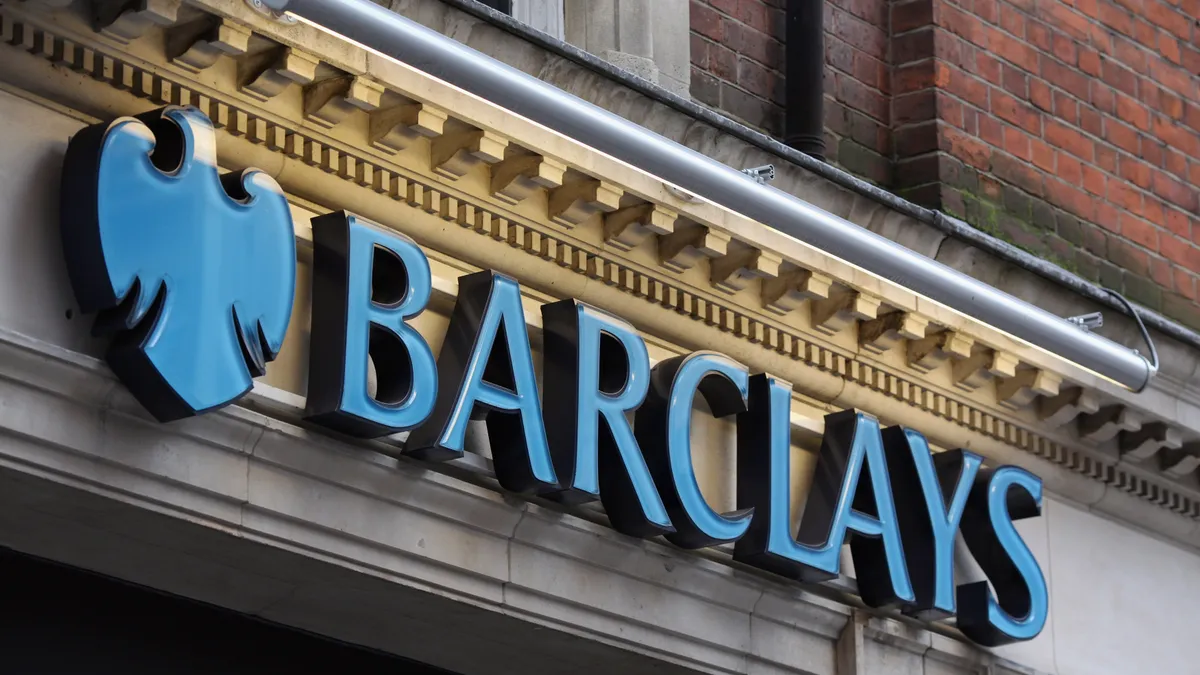Barclays has frozen the unvested portion of former CEO Jes Staley’s deferred pay “pending further developments” that stem from U.K. regulators’ investigation into his ties with late convicted sex offender Jeffrey Epstein, the bank said Wednesday in its annual report.
That means Staley could lose out on $32 million worth of Barclays stock, based on Wednesday’s share price, if the bank claws back the executive’s unvested compensation, The Wall Street Journal reported.
Almost 70% of Staley’s deferred bonus and long-term awards remain unvested, and roughly 15% has lapsed without vesting, the bank said. That adds up to 11.2 million shares.
Barclays “does not currently expect to make further decisions on this until the conclusion of those regulatory and legal proceedings,” it said Wednesday.
Staley resigned from Barclays in November as the Financial Conduct Authority and Prudential Regulatory Authority concluded he may have provided an incomplete picture to his employer of his relationship with Epstein, who was a client of Staley’s when the now-former Barclays boss worked at JPMorgan Chase.
Staley said in November he would contest the regulators’ findings. Barclays, meanwhile, said it would pay Staley his £2.4 million ($3.3 million) salary through October 2022, plus a £120,000 ($164,000) pension allowance, adding that Staley, who is American, is eligible for repatriation costs.
Staley’s successor at Barclays, C.S. Venkatakrishnan, said Wednesday he “cannot and will not comment” on matters surrounding Staley, whom he has called a “manager, mentor and friend,” according to the Financial Times.
Venkatakrishnan, however, said Barclays would continue a strategy launched under Staley — maintaining the bank’s trans-Atlantic investment arm alongside its U.K. retail and commercial presence.
“The broad strategy of the bank is not changing,” he said. “You should expect some amount of continuity.”
Strict interpretations
Barclays’ strategy as it pertains to Staley the person stands as a typical example of how a bank may withhold promised (but conditional) compensation in preparation for a less-than-favorable outcome.
But another bank — Goldman Sachs — appears to be using such freeze-outs as a punitive measure when executives leave, Bloomberg reported Wednesday.
Goldman has reportedly locked unvested compensation from former executives Gregg Lemkau and Eric Lane, who left the investment bank in 2020 and 2021, respectively.
Banks often don’t pull back awards unless executives flee to a direct competitor. However, Goldman, in some cases, has expanded the parameters of what it considers a rival firm.
Lemkau left Goldman to lead the investment firm MSD Partners. Lane joined tech investment specialist Tiger Global Management.
Goldman saw an accelerated talent drain in 2021. Lane, in fact, resigned during the same week consumer-banking chief Omer Ismail and Marcus’ head of large partnerships, David Stark, left for the nascent Walmart fintech.
And Goldman’s penalty against Ismail and Stark appears even more severe. The bank last month blocked them from cashing out stock bonuses that had vested and been taxed up to five years earlier, Bloomberg reported. Ismail and Stark allegedly have also been barred from company-led alumni events.
“Equity awards are governed by the agreement signed by the recipient,” Patrick Scanlan, a spokesperson for Goldman, told the wire service. “In each case mentioned by Bloomberg, there were explicit terms which were upheld.”
The bank has the right, under the strictest interpretation of contracts, to withhold unvested funds. But historically, that reading hasn't been enforced. For example, Goldman — and, for that matter, Bank of America, too — has allowed departing executives to access their deferred stock if their age and tenure at the bank equals 60 or more years.
Goldman’s move with Lemkau, Lane, Ismail and Stark runs counter to that.
Representatives for the four executives declined to comment to Bloomberg.
Bank of America early last year considered issuing bonuses exempt from the so-called “rule of 60” but changed course after senior dealmakers and traders fought the move.











